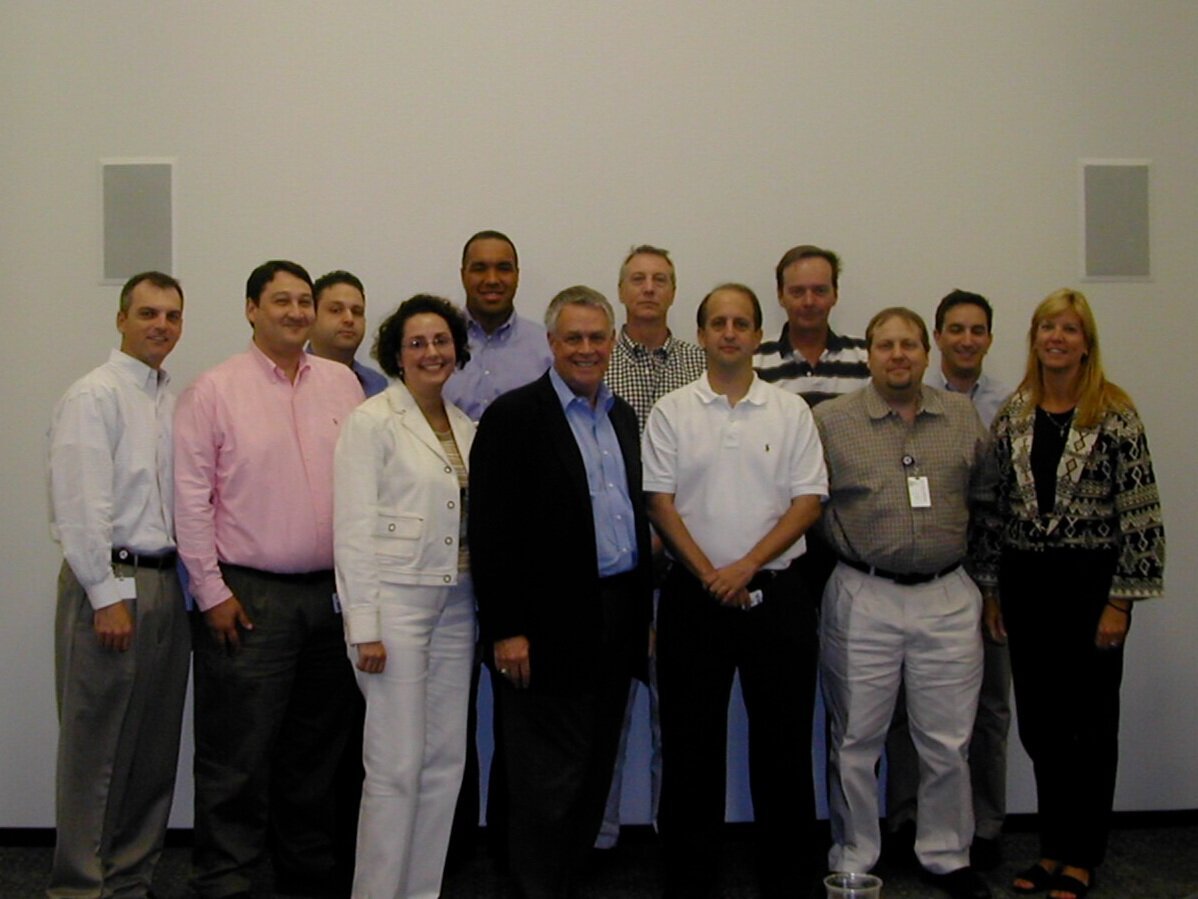Jeff Van Gundy Talks Leadership
An NBA Coaches Perspective on Leadership
Back in 2004 while running a leadership development program for Time Warner Cable in Houston, TX, I had the privilege of inviting Jeff Van Gundy, head coach of the Houston Rockets at the time, to address the leadership development program participants. Jeff had recently moved to Houston after an impressive run as the head coach of my hometown team, the New York Knicks.
Prior to the session with the participants, I met with Jeff along with Ron McMillan, the President of the Houston division at Time Warner Cable, to prep Jeff for the session. I vividly recall Jeff saying that he was a bit nervous about addressing a corporate group, as all of his work had centered around basketball and basketball players. I explained that the reason I was so excited to have him address this group, was that I see so many parallels between coaching a sports team and leading a company. It all revolves around bringing out the best in people and teamwork. While this was seventeen years ago and Jeff has gone on to a storied career as an NBA announcer, the notes I took that day still resonate.
Jeff shared several nuggets during the time he spent with the Time Warner Cable employees. Jeff began by sharing his four keys to leadership.
1) Be competent, this generates respect
Jeff explained that leadership is about earning respect and being respectful. He went on to explain, “the main goal of the leader is to get followers”. In order to get followers you have to be respected for your competency. Jeff believes that you must test your people by making the standards very high, this way your people cannot be on the fence, they are either “in” or “out”.
2) Be reliable
Jeff explained that having strong work ethic and doing the right thing everyday is critical. He went on to share an example regarding Patrick Ewing the all-star center of the New York Knicks and now Georgetown head coach. “Patrick always brought the right attitude. He showed up and gave 100% all the time. You never knew whether he was having a good or bad day because he was disciplined and consistent.” Reliability is an essential competency of good leaders.
3) Be sincere, say it the way you see it
Having a no BS approach and favoring transparency engages people in an honest way. Jeff’s desire for the Rockets was to unite and inspire the team in 2005. He wanted to get the players to work hard and to be unselfish. By setting his clear expectations and being sincere, he won the respect of his players.
4) Be trustworthy
There has been much research written about the critical importance of trust to effective teamwork. As a leader, being trustworthy is at the foundation of building relationships. When people know you have their best interests at heart, they will trust you and in turn go above and beyond.
With these four tenants for his leadership, Jeff’s coaching style has won him the respect of his players each time he coaches a team. In sharing his four keys, Jeff believes that if you do these things, you will be successful as a leader. His record definitely shows that his approach works.
Make It About The Team First
Jeff shared another great story about teamwork and leadership. The Rockets had just acquired Tracy McGrady from the Orlando Magic. Tracy had been one of the top scorers in the league the previous season. Jeff explained that during his first meeting with Tracy, he questioned, “How can you be a great player when your team had the worst record in the NBA last year. If you score 54 points in a game and we lose, I will bench you. You are a player with great potential. Great players are leaders and I need you to be a leader.” This was some tough love for Tracy. Tracy’s response was that he is a shy guy and that he does not like to speak in front of groups to which Jeff responded, “You can speak with your actions during practice, off the court and on the court, and that is my expectation for you (Tracy). Yao Ming is a leader yet he does not speak English well, leading does not require the ability to speak in public.”
This story really resonates with me because too many people have a narrow definition of what it means and what it takes to be an effective leader. Leading through actions over words was Jeff’s point. Too many people think that public speaking is critical to leadership, when in fact it is very secondary.
Jeff on Losing
“It is the 209 games that I lost that I remember vividly, not the games that we won.” Jeff’s work ethic, attention to detail and his preparation set him apart. Even as an assistant coach, he was constantly studying tape, and that did not end once he became a head coach. The loses only further motivated Jeff to work harder and to model that work ethic for his players.
Confidence versus Arrogance
“You must have true belief in oneself and confidence which is a very different thing than arrogance”. This is a tough concept for many leaders to grasp. Their is often a fine line between confidence and arrogance. Those that cross the line lose the respect of those around them. Having a servant leader mentality is a great way to keep arrogance at bay. Focus on helping to ensure the success of others.
Role Models and Mentors:
Jeff’s dad, Bill Van Gundy was a college basketball coach and he was a mentor and role model to Jeff and his brother Stan, another NBA head coach. In addition to the coaching blood in the family, Jeff had the privilege to be an assistant coach under Pat Riley. Pat Riley had been an NBA player, champion head coach of the LA Lakers and then the coach of the Knicks. Pat gained fame and notoriety for his tough style. Pat wrote a New York Times best selling book on teamwork and leadership, The Winner Within: A Life Plan for Team Players. I really enjoyed that book and it was part of my motivation to get Jeff to speak to the leadership development program participants.
“Pat Riley was the most influential person that I have worked for.”
Jeff looked up to and admired Pat. At the end of Jeff’s first season as an assistant coach under Pat, at the age of 29, Pat held an end of the year evaluation of Jeff. Jeff recalled the first piece of feedback from Pat, “You dress terribly” to which Jeff replied, I cannot afford to dress like you. Pat Riley was always one of the best dressed coaches in the NBA, back when they wore dress suits (Pre-Covid). Pat when on to ask, “Do you ever want to be a head coach in this league?” Jeff’s response, “I never thought of myself in that way.” Pat, “Well you should!”
That endorsement stuck with Jeff. His opportunity came sooner than he expected. At 34 years old he was in his hotel room in Philadelphia when the GM called him and said the coach had been fired and that Jeff was now the head coach. Jeff recounts that the initial feedback session with Pat had prepared him for that day. Pat’s advice that had stuck with Jeff was “Generate confidence in the payers. Ask yourself if you can help them to accomplish their goals? Can you help the team accomplish its goals?”
Jeff’s Knicks made the playoff several years and made the NBA finals in 1994. Most importantly, Jeff was loved and respected by his players. Since retiring from coaching Jeff has become one of the best NBA commentators. He insights on the game and the homework he does to prepare for each broadcast is unparalleled.
When Jeff wrapped up the meeting with the Houston Time Warner Cable leadership program participants, I remember making him an offer. “When you are ready to write a book, let’s collaborate.” I have been working on a book idea called “The Team Timeout.” In my work, I refer to any executive team offsite that I lead: as a team timeout. In sports timeouts play a critical role to the overall strategy of winning the game, yet in business teams rarely call timeouts. The premise of the book is to share parallels between coaching in sport and coaching in business. For now you can read more about the approach at www.theteamtimeout.com.
Jeff remains someone I highly respect as a leader. He has inspired many NBA players and his leadership approach can serve as inspiration to anyone looking to get the best out of their people.


